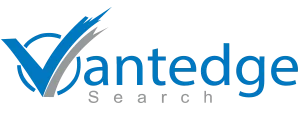In This Issue
- Message From Our President
- OpenAI’s Leadership Crisis: Balancing Innovation with Ethical AI Development
- Expert’s Corner: What’s Trending
- Executive Movements – Transitions & Pivots
- Advice For Executive Career Development – Pitfalls To Avoid!
Message From Our President

Rajesh Khanna,
President,
Vantedge Search
As we approach the end of a remarkable year, I reflect on the dynamic and eventful journey we have navigated together. The stories in this edition of the Vantedge Point newsletter, from OpenAI’s leadership challenges to the evolving trends in talent management, underscore the rapid transformation in the world of executive leadership.
In 2023, we witnessed a significant shift in the corporate landscape. The rise in CEO turnovers, the blurring lines between talent acquisition and management, and the increasing preference for interim roles are just a few indicators of how swiftly our environment is changing. These changes are not just trends but are reshaping what is expected of executive leaders. Today, more than ever, adaptability, ethical decision-making, and a keen understanding of technological and societal shifts are vital attributes of successful leadership.
Looking forward to 2024, we anticipate continued evolution in these dynamics. The role of executive leaders will further advance, requiring an even more nuanced understanding of global business challenges and opportunities. At Vantedge Search, we remain committed to guiding and supporting you through these transitions, ensuring your leadership journey is both impactful and fulfilling.
As we bid farewell to 2023 and welcome the new year, I extend my heartfelt wishes for the holiday season. May it be a time of joy, reflection, and reinvigoration for you and your loved ones. Here’s to a prosperous and successful 2024!
OpenAI's Leadership Crisis: Balancing Innovation with Ethical AI Development

In the rapidly evolving field of artificial intelligence (AI), OpenAI has emerged as a prominent player, known for its ground-breaking technologies and commitment to ethical AI development. However, the company recently faced a leadership crisis that highlights the inherent challenges in balancing innovation with ethical concerns in the AI industry. This crisis centered on the temporary firing and swift reinstatement of CEO Sam Altman, revealing deep internal tensions and raising questions about the company’s future direction.
OpenAI, initially founded with the ideal of responsibly advancing AI for the betterment of humanity, confronts the difficult task of aligning this mission with the pressures of commercialization and rapid technological progress. The incident with Altman, initially attributed to communication issues with the board, sheds light on the complexities of managing technological advancement while adhering to ethical standards. His rapid return following employee and investor backlash underscores the intricate dynamics at play within OpenAI and the AI industry at large.
The episode also signals a potential shift in OpenAI’s focus, possibly moving from prioritizing risk mitigation to emphasizing rapid commercialization, influenced by powerful investors like Microsoft. This shift raises concerns about whether the company might stray from its original mission of ethical AI development. The strong reaction from employees, some of whom threatened to leave, and the ensuing board reshuffle, points to the need for better transparency and governance in AI firms. These developments reflect broader industry-wide issues, where the pace of technological advancements often outstrips the development of ethical guidelines and regulatory frameworks.
Thus, the Sam Altman saga at OpenAI serves as a crucial example of the challenges faced by AI companies in navigating the fine line between innovation, commercial success, and responsible AI development. It underscores the importance of maintaining ethical considerations and societal values at the forefront of AI advancements, ensuring that these technologies contribute positively to society while mitigating potential risks. The incident at OpenAI is not just about a leadership crisis but also about setting a precedent for how AI companies should operate in an ethically responsible manner amidst technological evolution.
For more information on Vantedge Search, please contact us. We look forward to hearing from you.
Expert's Corner –
What's Trending?
Navigating the Future of Talent Management
In the dynamic corporate landscape of 2023, the strategies companies employ to manage, develop, and retain their talent are evolving significantly. As businesses grapple with rapid technological advancements and shifting market demands, the traditional paradigms of talent management are being redefined. Here, we delve into three key trends that are shaping the future of talent management.
The Rise of Internal Talent Mobility
Professional growth, as a concept, is undergoing a transformation. Instead of primarily seeking opportunities outside their current organizations, professionals are increasingly looking inward. This trend towards internal mobility isn’t confined to traditional upward progression. It encompasses lateral moves, skill acquisition, and the pursuit of diverse challenges within the same organization. By promoting such growth, companies not only retain their top talent but also ensure that employees find roles that align with both their individual skills and the organization’s strategic objectives.
Talent Acquisition & Management Synergy
The lines between talent acquisition and talent management are blurring. In today’s fast-paced business environment, hiring the right talent is just the beginning. The real challenge lies in creating a seamless employee lifecycle. This means ensuring effective onboarding, continuous career development, and a sense of value and belonging. Such a cohesive approach ensures that employees have clear growth trajectories and feel integrated into the company’s larger mission and vision.
Interim Employment Gains Traction
The flexibility of the modern workforce is becoming increasingly evident through the rise of interim employment. Companies are now more open to onboarding interim executives and professionals for specific, time-bound objectives. These individuals come equipped with specialized expertise and can quickly adapt to their new roles, driving projects or filling leadership gaps. This trend underscores the value companies place on agility and the ability to pivot in response to immediate needs or challenges.
Executive Movements
Leadership Transitions & Strategic Pivots
Sam Altman was reinstated as CEO of OpenAI following a tumultuous five days at the AI company. His return was facilitated by a board reshuffle and an agreement between Altman and OpenAI. This development has highlighted the intense debate over the pace and safety of AI deployment. Sam Altman was reinstated as CEO of OpenAI following a tumultuous five days at the AI company. His return was facilitated by a board reshuffle and an agreement between Altman and OpenAI. This development has highlighted the intense debate over the pace and safety of AI deployment.
Kyle Vogt, the CEO of General Motors’ robot-taxi unit Cruise, resigned. His resignation followed a period of turmoil at Cruise, including a safety review after an accident involving one of its self-driving taxis. GM’s general counsel, Craig Glidden, was named as Cruise’s chief administrative officer, and Mo Elshenawy became the chief technology officer. Vogt’s resignation was part of broader scrutiny and changes at Cruise, which competes with Alphabet’s Waymo in autonomous vehicle technology.
Binance, the world’s largest cryptocurrency exchange, has agreed to pay over $4 billion in penalties to resolve U.S. investigations, leading to the resignation of CEO Changpeng Zhao. Zhao pleaded guilty to U.S. money laundering violations, failing to maintain an effective anti-money laundering program.
Bob Goldberg, CEO of the National Association of Realtors (NAR), has announced his resignation. The decision follows his testimony at the Sitzer/Burnett trial and precedes his planned retirement at the end of 2024. Nykia Wright, a Chicago media executive and startup co-founder, will serve as interim CEO.
Luis Berruga, CEO of Global X, a New York-based exchange-traded fund (ETF) provider, has resigned after nearly a decade with the company, citing personal reasons. Thomas Park, co-CEO of Global X’s South Korean parent company Mirae Asset Global Investment, will lead the firm until a new CEO is appointed.
Anne Richards announced her resignation as CEO of Fidelity International, a role she had held for five years. Richards will transition into the position of Vice Chair, where she will focus on Fidelity’s external relationships and strategic partnerships.
Marc Benioff, CEO of Salesforce, has announced that long-time executive Denise Dresser will take over as the new CEO of Slack. Dresser becomes the third CEO of Slack since its acquisition by Salesforce in 2020, replacing Lidiane Jones.
FinTech Australia refreshed its board with four new appointments. Sarah Gorman of Digital Agriculture Services joins as deputy chair, bringing over 30 years of diverse experience. Joining her are Kellie Morton from Birchal, Vinnie D’Alessandro from Change Financial, and Brian Collins of Audacity Ventures. Simone Joyce of Paypa Plane will continue as chair through 2024, planning a transition to a new chair next year.
EY announced that Janet Truncale will be the next EY Global Chair and CEO, effective July 1, 2024. She will succeed the current EY Global Chair and CEO, Carmine Di Sibio.
HSBC named Vinay Mendonca as CEO designate for its upcoming embedded finance joint venture with US fintech Tradeshift. Slated for a 2024 launch, the venture, backed by a $35 million investment from HSBC, will focus on developing finance solutions and apps. HSBC will hold a 75% stake in the business. Additionally, Barry O’Byrne, CEO of HSBC’s global commercial banking, has been appointed as board chair.
PayPal enhanced its leadership team with two key appointments. PayPal appointed Jamie Miller as the new Executive Vice President and Chief Financial Officer, succeeding Gabrielle Rabinovitch, the acting CFO. It also announced the appointment of Archie Deskus as its new Chief Technology Officer.
Travelex appointed Jackie Uhi to lead its retail division, emphasizing its commitment to expanding its global retail portfolio. Uhi, an Australian with over three decades of experience in retail banking in the UK and APAC region, joins from HSBC.
Stacey Zengel, President of Bank Solutions at Jack Henry & Associates, is set to retire on June 30, 2024. With a 24-year tenure at the company, Zengel has been a key figure in Jack Henry’s growth since joining in 1999.
The Texas-based digital bank and fintech, Green Dot, appointed Dave Harden as its new Chief Technology Officer (CTO). Harden’s transition from Senior Vice President of Product Development, a position held since February 2022, involves overseeing the development and delivery of Green Dot’s technology platforms.
MDT, the Michigan-based provider of private cloud alternative for core processing and IT needs to credit unions announced a C-suite reshuffle. It includes the appointment of a long-time company veteran, Schneider, as the new Chief Product Officer (CPO), transitioning from his role as Vice President of Project Management and Implementations. Additionally, Lanigan, who has been the Vice President of MDT’s Technology Operations since 2017, steps up as the new Chief Information Officer (CIO).
Walgreens Boots Alliance, a leader in healthcare, pharmacy, and retail, appointed Neal Sample as CIO.
The consumer products company, Modere, focusing on health and wellness appointed Guy Thier as CIO.
The Great American Insurance Group promoted Joseph R. Kowaleski, previously divisional SVP, to CIO.
Frontier Airlines, serving various destinations in the Americas, hired Rajat Khanna as CIO.
CEO Turnover Trends: Navigating Complexities in a Shifting Business Landscape
The significant number of CEO exits and movements in 2023, particularly in November, can be attributed to a complex mix of factors affecting the global business landscape. A surge in CEO departures is observed due to a range of challenges including adapting to demands for remote and hybrid work models, the repercussions of worker burnout, talent shortages, and the necessity for increased diversity and mental health support. These changes are set against a backdrop of economic uncertainties, including issues related to inflation, skilled labor, and supply chain disruptions.
In 2023, there has been a massive 50% rise in CEO exits compared to the previous year, with over 1,400 chief executives leaving their positions by September, the highest rate since the commencement of tracking in 2002. Q3 itself recorded 518 CEO departures, perhaps the highest quarterly total ever.
While many companies do not disclose detailed reasons for CEO departures, common causes include retirement, transitioning to different roles within the company, the end of interim CEO periods, or moving to new organizations. Additionally, a significant number of CEOs have left without specified reasons, adding to the ambiguity surrounding these high rates of turnover.
These trends suggest that the role of the CEO is evolving rapidly amidst global economic and social shifts. The high turnover rate might reflect the growing complexities and pressures of leading major corporations in an increasingly volatile and unpredictable business environment. The shifts also point towards a possible realignment in corporate priorities and strategies, as companies navigate through these turbulent times.
Advice For Executives Seeking New Opportunities
A daunting task made easy with the right guidance. Executive job seeking can pave the way for new opportunities, provided you know what pitfalls to avoid.
- Emotional roller-coaster: Career transitions can be taxing psychologically, triggering strong emotional responses. Keeping emotions in control is important to have clarity of thinking and to make judicious decisions. Whom can you look up to? Connect with your mentors or seek counseling to be able to handle your emotions.
- Poor networking: Put time and efforts in building quality relationships. How do you do that? Engage meaningfully. Offer value and identify synergies. This will help you build symbiotic relationships.
- Small digital footprint: In the modern era, you need to radiate your executive presence. Leverage professional/social media platforms like LinkedIn or X. These are dynamic spaces. Share insights through meaningful blogs or structured opinion pieces. A strong digital presence is imperative for a powerful professional reputation.
- Thoughtless career interludes: Don’t let your breaks go waste in purposeless leisure. Use these prudently to add strategic value. See how you can upskill, for example, enhance your mentoring skills or negotiating/conflict resolution skills.
- Not knowing your leadership legacy: A hallmark of a good leader is knowing your professional ethos. What do you bring to the table? What sets you apart? How do you assess/envision your impact? This clarity will guide your next steps.
- Undiversified approach to job hunting: Headhunters can open doors, but overreliance on them is not a wise thing to do. This is because their primary allegiance is to their clients. As a hedge, diversify your approach to job hunting.

